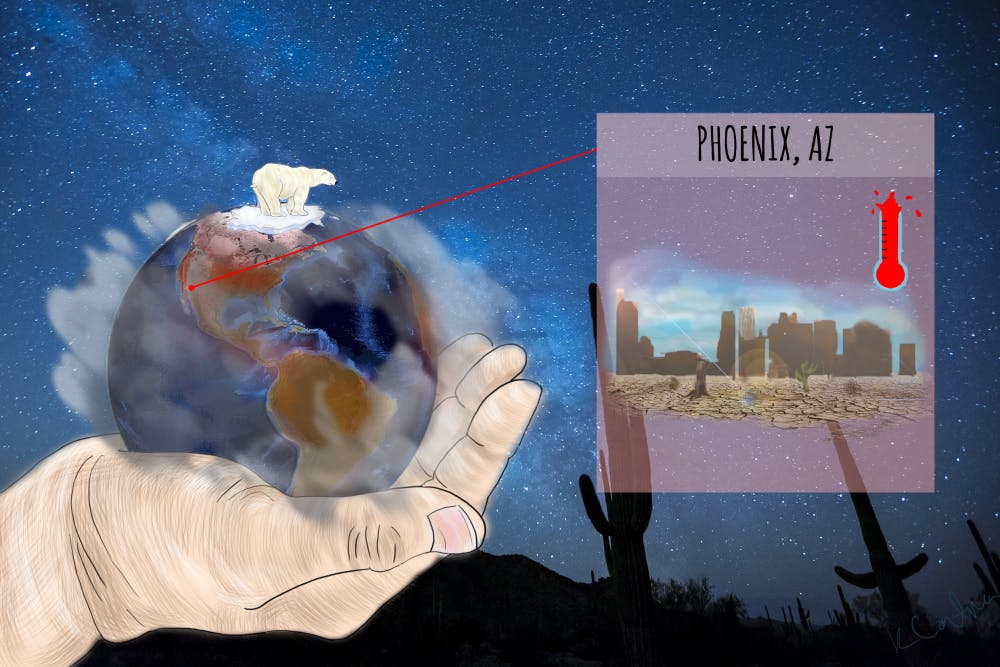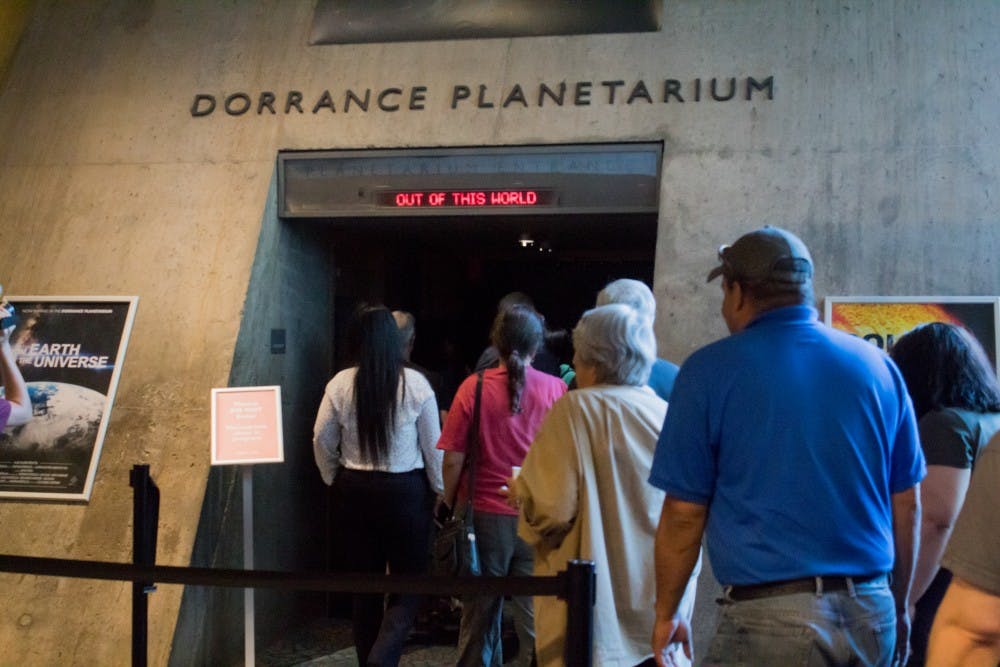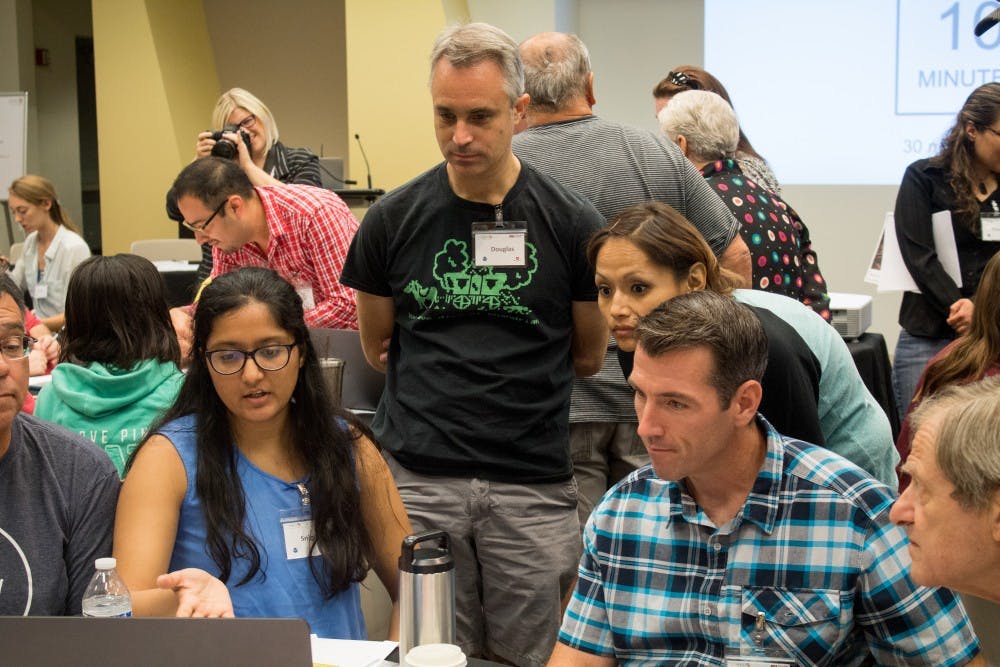Scientists say climate change will crank up the heat in Phoenix over the next century, and to help prepare, a team at ASU sought to involve citizens in a conversation about how to prepare their communities
The ASU Consortium for Science, Policy and Outcomes hosted a forum funded by the National Oceanic and Atmospheric Administration that brought a group of Phoenix citizens together at the Arizona Science Center to discuss community resilience against extreme heat and drought last weekend.
Group activities allowed participants to act as resilience planners for fictional cities. They were encouraged to see through the eyes of farmers, business owners and hobbyists when deciding the best plans to pick for their cities.
The participants were able to see the positive and negative effects of their plans through visuals on Google Earth, provided by Northeastern University. For example, planting trees and grass can cool down a city, but it can also drain the water supply during droughts.
Mahmud Farooque, an associate director at the consortium, helped design the forum, which will be replicated in other cities around the U.S. He said the goal is to create an environment for citizens and experts to openly discuss science-based solutions.
“One goal for us is to provide a safe space for people who are not experts to have a conversation,” Farooque said. “The longer-term goal is how we can democratize our social political discourse in a constructive way that leads to better outcomes.”
Farooque said 60 attendees were chosen out of close to 300 people who applied. The emphasis for selecting them was based on Phoenix's diversity.
“The people represent the demographic composition of Phoenix,” Farooque said. “We made sure there is a critical mass of particular groups, especially if they’re of a different ethnicity, language or cultural background.”
Farooque said that part of the project’s objective was to train science museums across the country to carry on the work and continue the forums.
“By demonstrating and showing and training museums to do this in their different communities,” Farooque said. “They’re building capacities to engage their citizens in the planning process of whatever challenges they are facing.”
David Sittenfeld, program manager at the Museum of Science in Boston, helped set up the forum and said to the participants that the objective was to create respectful conversations.
"The goal of this particular project is to engage diverse groups of laypeople from every walk of life ... in respectful informed dialogues about building community resilience to weather and climate related hazards," Sittenfeld said.
Participant Rodney Clements said that collaboration with his fellow community members was essential to complete the activities.
"You get everybody’s opinion or experience and you have to work together and be flexible to make it work," Clements said.
Brian Grant, a graduate student at the School of Sustainability, observed the forum for the Climate Resilience in Urban Campuses and Communities Project. He said that climate change will have disproportionate effects on low income Phoenix residents.
“We have the slow growing boil where it’s going to get progressively hotter and hotter," Grant said. "That’s obviously going to be an issue, especially for low income folks or homeless folks."
Nicholas Weller is a graduate student at the School for the Future of Innovation in Society. He was the forum's announcer and helped run the event.
Weller said that the forum was designed to inspire community engagement and tap into people's concern for their neighborhoods.
"People can identify with their community," Weller said. "They care about the people around them: their family, their friends, about the economic and social well-being of their neighborhood and surroundings. Those are really important things to people."
During the lunch break at the forum, Mark Hartman, chief sustainability officer for the City of Phoenix, gave a talk about the resiliency of Phoenix. Afterwards, participants came up to Hartman to discuss what they had learned.
Weller said that seeing the participants voluntarily engaging with their representative was a great moment.
"They were chatting with him. They were sharing what they were doing and what came out of the day. That’s gold for us," Weller said. "When people feel that they can go and talk to their city representative about these kinds of issues, that’s what we want to see."
Reach the reporter at cscragg@asu.edu or follow @monsoonchaser on Twitter.
Like State Press on Facebook and follow @statepress on Twitter.






